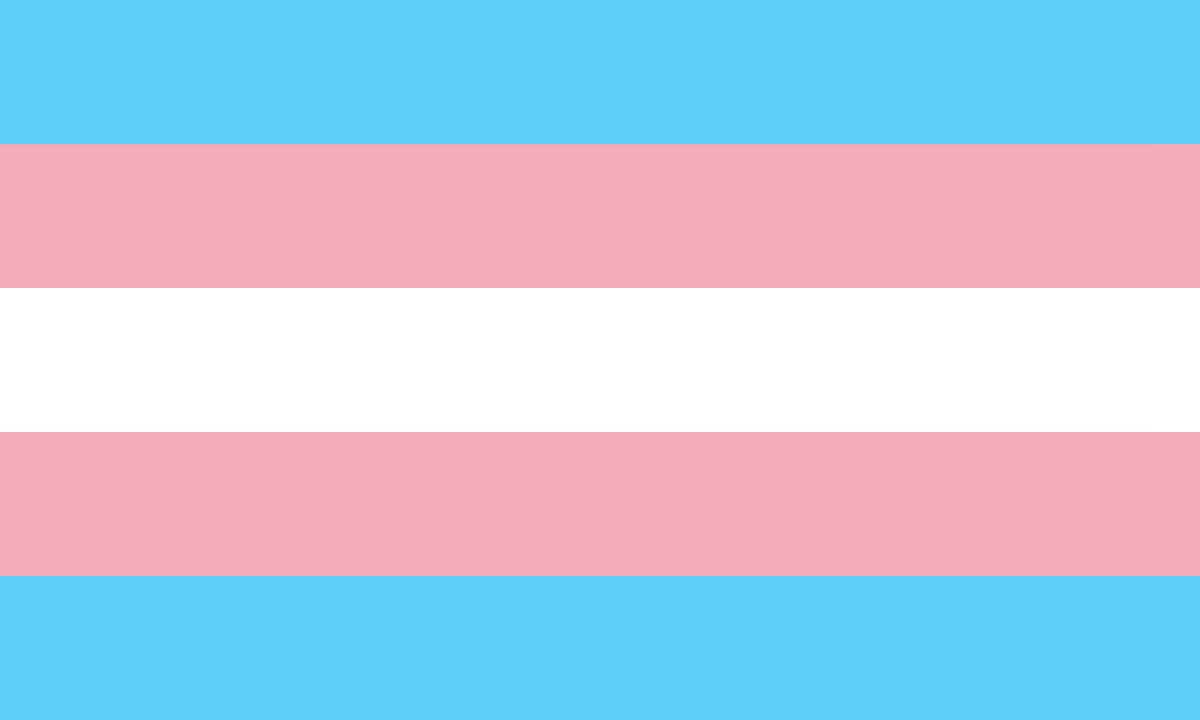It’s time to call BS on a medical practice that’s affecting the wellbeing of women and people assigned female at birth (AFAB).
It’s not having to wait months for an appointment or having non-gyno specialists make rude comments about our bodies (though that’s pretty awful too) — we’re talking about medical gaslighting. It’s dangerous, it’s morally wrong. And it’s happening All. The. Damn. Time.
Medical gaslighting is when medical professionals dismiss or downplay your medical concerns. And it’s not just a ‘few bad apples’ stinking up a handful of medical clinics. Medical gaslighting is a reality for many of us. In fact, a recent survey found that one in three women have had their health concerns dismissed by medical practitioners.
To put it bluntly (because we can do that here) the dismissive attitudes of medical professionals stuff things up for vulnerable patients. Conditions like Endometriosis and PCOS are all too often misdiagnosed or treated like they're nothing, which means we have to wait longer for treatment, end up suffering even more, or live with severe health consequences — like loss of fertility.
We’re working to ensure that all people assigned female at birth feel heard when they’re seeking medical help — because the first step to feeling better is being believed. So let’s grab our theoretical pitch-forks and gather the knowledge we need to burn the patriarchal system of gaslighting to the ground. Ready? Let’s get started.
What is Medical Gaslighting?
Officially, medical gaslighting is when healthcare providers dismiss, downplay, or invalidate medical concerns and prevent people from receiving the healthcare they need. Unofficially, it's when doctors play a twisted game of “I know your body better than you do” and call you a hypochondriac. Real nice, right?
Even though medical gaslighting can affect people of any gender, it disproportionately affects women and those assigned female at birth, especially those who belong to marginalised communities (because it’s not just awful -— it’s scum-suckingly bad). Women of colour, older women, disabled women, LGBTQ women, and women of lower socioeconomic status often experience a higher incidence of medical gaslighting.
And while outrage is starting to bubble into modern media, the concept of medical gaslighting is hardly new. In fact, the misogynist stereotypes of “irrational” women seeking medical help go back to ancient Greece when women were thought to act hysterically due to our wombs moving about freely inside our bodies (I mean, why the hell not?). Learn more about this and the history of the Gender Health Gap here.
Even more ridiculously the psychological diagnosis of female “hysteria” was only removed from the Diagnostic and Statistical Manual of Mental Disorders, 3rd ed, in 1980. That means David Bowie was releasing albums at the same time that doctors could diagnose women as being “hysterical” nuisances.
Even in emergency situations, women’s experiences are being downplayed. In fact, one study published in Academic Emergency Medicine found that women presented to an ER with severe stomach pain had to wait for almost 33% longer than men with the same symptoms.
The ongoing dismissal of women’s physical and psychological symptoms is a serious threat to our health. Medical gaslighting not only breaks down trust between female patients and their providers, it prevents accurate diagnoses and timely treatments, perpetuating a cycle of increased risk, frustration and prolonged suffering. Angry now? Good. Let’s break it down some more.
What are Medical Gaslighting Tactics?
“I’m sure it’s nothing” — ever heard that one before? The tactics employed in medical gaslighting are usually subtle, aiming to eat away at your confidence in your own experiences and intuition. Healthcare providers can use a range of strategies to undermine women's concerns, including:
- Dismissing or trivialising symptoms: This means that your physical and emotional symptoms are dismissed as exaggerated, psychosomatic (in your head), or aren’t important. By downplaying your experiences, it messes with your relationship with your body and can delay the identification and treatment of serious conditions. Remember: you might not be an MD, but you know your body best.
- Invalidating emotions and experiences: We’re just so emotional, right? With gaslighting emotional distress and subjective experiences are invalidated, leading to self-doubt and a sense of powerlessness. You know, the old “calm down, everything is fine, your test results are clear” ”.
- Ignoring alternative diagnoses or treatment options: Medical gaslighting can involve an unwillingness to explore alternative explanations or treatment approaches, limiting your access to appropriate care. Practitioners may dismiss your needs and preferences, further undermining your ability to partake in healthcare decisions.
Understanding these manipulative tactics is the first step in putting an end to medical gaslighting. By recognising these patterns, you can assert your rights, challenge dismissive attitudes, and demand the respectful and comprehensive care you deserve. Between you and me, flipping the bird is another option too, but that’s probably a “less progressive” approach.
What is Medical Gaslighting and How Do I Spot It?
Now we know what medical gaslighting is, let’s do a quick 101 on how to spot it. By exploring some real-life examples, we can expose types of medical gaslighting and shed a light on the dismissive attitudes that women are often confronted with within healthcare settings.

- It’s probably nothing.”
All too often, a man who expresses pain is seen as being in pain. A woman who expresses pain, however, is viewed as making a scene.
A survey of 5,100 adults found that 56% of women felt their pain was ignored or dismissed, even in medical settings. Despite expressing concerns, women are often met with responses like, “pain is normal" or "it’s just something you’ll have to get used to". These dismissals not only undermine the severity of the symptoms but also perpetuate a culture of disbelief surrounding women's pain.
- “It’s just anxiety.”
Another sign of gaslighting is when practitioners don’t take mental health symptoms seriously, undermining a woman’s experiences and leading to feelings of self-doubt or shame. Where a man might be deemed as justifiably “stressed’’, a woman may be seen as “overly emotional”.
This can also look like mental health symptoms being dismissed as "just hormonal fluctuations" or “just a bit of anxiety”. These responses delegitimize mental health concerns and disregard the need for a comprehensive mental health assessment.
- “Ok… so as I was saying”
What’s the dreaded cousin of mansplaining? Women-interrupting. One clear sign of gaslighting is when a doctor interrupts you. Infact, a small 2018 study showed that clinicians typically interrupt their patients 11 seconds into the conversation. By interrupting you, it sends a message that their time is worth more than yours and that they have already made a decision on your care without your full input.
- “It’s all part of being a woman”.
Let me get this straight? Eve stole an apple and now women are cursed with pain? It’s ridiculous, but this biblical BS has weaselled its way into modern thought under the guise of: You’re a woman, things hurt. Get over it.
If a man went to a GP with severe pelvic pain, chances are he would be sent for exploratory tests immediately. But for us, our pain is often dismissed as just part of being a woman. In fact, research shows that the normalisation of period pain leads women to wait two to three years before seeking medical help.
Even after heading to a doctor, women still might not get the help they need. One study showed that even when a common condition like endometriosis is suspected, GPs still have very low referral rates for further diagnosis testing.
- “A bad headache? It's probably just a migraine”
If your doctor assumes you don’t have something because you’re a woman, then it’s a likely sign of gaslighting. This kind of gender bias can lead to late or misdiagnosis for male-associated conditions, like heart attacks or strokes. For example, a 2014 study found that women who presented to an ER following a stroke were more likely to be misdiagnosed, despite presenting with headache and dizziness, even though strokes are statistically more common in women.
- “Why do you want a second opinion? I gave you the diagnosis.”
A hallmark of medical gaslighting can be the outright refusal to explore alternative diagnosis or treatment approaches. If a healthcare provider dismisses your requests for further investigation or insists on a one-size-fits-all approach without considering your unique circumstances, it is essential to advocate for yourself and seek a second opinion.
If you hear comments like any of the above at your doctor's appointment, it’s important to recognise them as medical gaslighting. Remember: your experiences are valid and worthy of real medical attention.
The Effects of Medical Gaslighting on Women
Calling gaslighting practitioners selfish pricks can be fun, but there’s nothing funny about the effects of medical gaslighting. This harmful practice takes a toll not only on our physical health but also on our emotional and psychological wellbeing. By understanding the significant effects of medical gaslighting, we can acknowledge and address the harm it inflicts, and work towards better health and empowerment.
The emotional impact of medical gaslighting can’t be understated. It can change the whole trajectory of your life. Women subjected to dismissive attitudes and invalidation of their health experiences often experience:
- Delayed or Missed diagnosis: When a diagnosis is missed or delayed, it can have significant consequences. This might mean missing a vital window to begin treatment or living with pain or discomfort for longer than necessary.
- Feelings of Doubt and Frustration: When our concerns are repeatedly dismissed or belittled, we may begin to doubt ourselves, second-guess our intuition, and question our own understanding of our bodies. This doubt can erode our self-confidence and hold us back from seeking the care we need.
- Lowered quality of life: Untreated pain can have a detrimental affect on us, both physically and psychologically. By not getting adequate treatment, you may notice a decrease in your ability to work, socialise, or complete everyday basic activities
- Sense of Powerlessness: Medical gaslighting can leave us feeling powerless. You know something is wrong, but no one is taking you seriously and you feel like you’re out of options. This power imbalance can cause significant distress and make us feel like we’re losing control over our lives.
- Impaired Trust in Healthcare Providers and the Medical System: Once bitten, twice shy. Once you’ve experienced medical gaslighting you may begin to mistrust healthcare providers and the medical system as a whole. The betrayal of being dismissed or invalidated leaves a lasting impact, making it challenging to develop trusting relationships with healthcare professionals.
By acknowledging the emotional impact of medical gaslighting, we can begin the process of demanding change and creating a new system. If you’ve suffered from medical gaslighting, it can be helpful to talk to a counsellor and remember that your voice deserves to be heard and respected.
How Can I Overcome Medical Gaslighting?
In short: Medical gaslighting sucks. It’s misogynistic, cruel, and dangerous. But we’re not powerless to stop it. By equipping ourselves with effective strategies, we can navigate medical bias and demand the respect and comprehensive care we deserve.
Here are key steps for reclaiming your voice and combating medical gaslighting:
- Assertively Expressing Concerns and Demanding Respect: You got this. Speak up confidently about your symptoms, concerns, and experiences. Assert your right to be heard and respected by healthcare providers. Don’t be cut-off, spoken over, or ignored. Your voice matters and you deserve compassionate and attentive care.
- Get a second opinion: If you think something’s wrong, you may be right. If you feel that one doctor invalidated you and your experiences and didn’t let you have a say in your care, find someone who will take your concerns seriously.
- Documenting your symptoms and interactions: Fight bias with proof. Keep a detailed record of your symptoms, medical appointments, and conversations with healthcare providers. Having tangible evidence can support your case, validate your experiences, and help you find accurate diagnoses and appropriate treatments.
- Building a Support Network and Seeking Additional Resources: We’re in this together. If you think you’ve suffered because of medical gaslighting. Join patient advocacy groups and online communities where you can find support.
- Seeking Therapy or Counseling for Emotional Support: Emotional gaslighting can have long term effects on your physical and mental health. Consider seeking therapy or counselling to process your feelings and support your emotional well-being. Mental health professionals can offer support, validation, and strategies for coping with gaslighting.
By employing these strategies, women can work together to stand up to medical gaslighting and help themselves to heal emotionally and physically.
Changing the Medical System Together
Medical gaslighting is a challenging issue to address in the medical world due to knowledge gaps among medical professionals, gendered biases, and unfair power dynamics in the doctor-patient relationship.
However, as women and people assigned female at birth we can not only strengthen our own defences against medical gaslighting, we can help shape change and demand a healthcare system that prioritises our needs and respects our autonomy. If you want to actively participate in transforming the healthcare system, here are some places to start:
- Don’t avoid, advocate! Be an active participant in your healthcare. Don’t shrink yourself in a doctor’s office to be ‘nice’. If you feel like you're not getting the care you deserve, make a fuss.
- Educate yourself: Take the time to learn about your health condition, symptoms, and potential treatment options. More knowledge means more power especially when it comes to making informed discussions with healthcare professionals.
- Promote policy changes: Support and advocate for policy changes that address medical gaslighting. This includes pushing for improved medical education on gender bias. Create petitions, write letters to the Government, and do your part to make your voice heard.
- Amplifying Your Voice: Raise awareness about medical gaslighting by sharing your story and experiences. Social media platforms, blogs, and online communities provide avenues to share your truth and shed light on this issue.
- Seeking Providers Who Listen: When choosing healthcare providers, prioritise those who listen to you and take your concerns seriously. Seek out professionals who demonstrate empathy, compassion, and a commitment to women's health. Don't settle for anything less than the quality of care you deserve.
By actively engaging in change, we can help create a fairer healthcare system for us and future generations of women. Remember, we are not passive recipients of healthcare—we are active participants, advocates and catalysts for change.
We’re on a mission to close the Gender Pain Gap. And that includes fighting against medical gaslighting. Our online digital health clinic is dedicated to empowering women and people assigned female at birth and ensuring that your concerns are never dismissed or invalidated. Join Hazel today and finally get the safe and unbiased comprehensive care you've been looking for.
The Bottom Line
It’s time to call out medical gaslighting as the damaging practice that it is. If you’re wondering if you’ve been gaslighted by a medical professional, ask yourself if you’ve noticed any common tactics during your appointment, such as a practitioner dismissing or trivialising symptoms, invalidating emotions and experiences, or ignoring alternative diagnoses and treatment options. By recognising these tactics, you can assert our rights. After all, women and people assigned female at birth are not irrational or ‘hysterical’ — we’re powerful, capable, and deserve comprehensive healthcare.
We’re committed to putting an end to medical gaslighting and ensuring that our concerns are heard and validated. Together, we can transform the healthcare system by raising awareness, amplifying our voices, and demanding a culture that values and respects pur experiences.
To stay in the know about what we’re doing and how we can help you finally get the care you deserve, join Hazel today.
To keep on learning, return to The Lowdown by Hazel.

- ABC/Vox Pop Labs. Australia Talks National Survey 202. Accessed 2021 Mar 29.
- Chen EH, Shofer FS, Dean AJ, Hollander JE, Baxt WG, Robey JL, Sease KL, Mills AM. Gender disparity in analgesic treatment of emergency department patients with acute abdominal pain. Academic Emergency Medicine. 2008;15:414-418. doi:10.1111/j.1553-2712.2008.00100.x
- Fraser S. The toxic power dynamics of gaslighting in medicine. Canadian Family Physician. 2021;67(5):367-368. doi:10.46747/cfp.6705367
- Hudelist G, et al. Diagnostic delay for endometriosis in Austria and Germany: causes and possible consequences. Human Reproduction. 2012;27(12):3412-3416. doi:10.1093/humrep/des316
- Newman-Toker DE, Moy E, Valente E, Coffey R, Hines AL. Missed diagnosis of stroke in the emergency department: a cross-sectional analysis of a large population-based sample. Diagnosis. 2014;1(2):155-166. doi:10.1515/dx-2013-0038
- Noe Pagán C. When doctors downplay women’s health concerns. The New York Times. 2018 May 3. Available from: https://www.nytimes.com/2018/05/03/well/live/when-doctors-downplay-womens-health-concerns.html. Accessed 2021 Mar 29.
- Phillips KA, Ospina NS, Montori VM. Physicians interrupting patients. Journal of General Internal Medicine. 2019;34(10):1965. doi:10.1007/s11606-019-05247-5
- Tasca C, Rapetti M, Carta MG, Fadda B. Women and hysteria in the history of mental health. Clinical Practice and Epidemiology in Mental Health. 2012;8:110-119. doi:10.2174/1745017901208010110
- van der Zanden M, Nap AW. Knowledge of, and treatment strategies for, endometriosis among general practitioners. Reproductive Biomedicine Online. 2016;32(5):527-531. doi:10.1016/j.rbmo.2016.02.003











.jpg)




